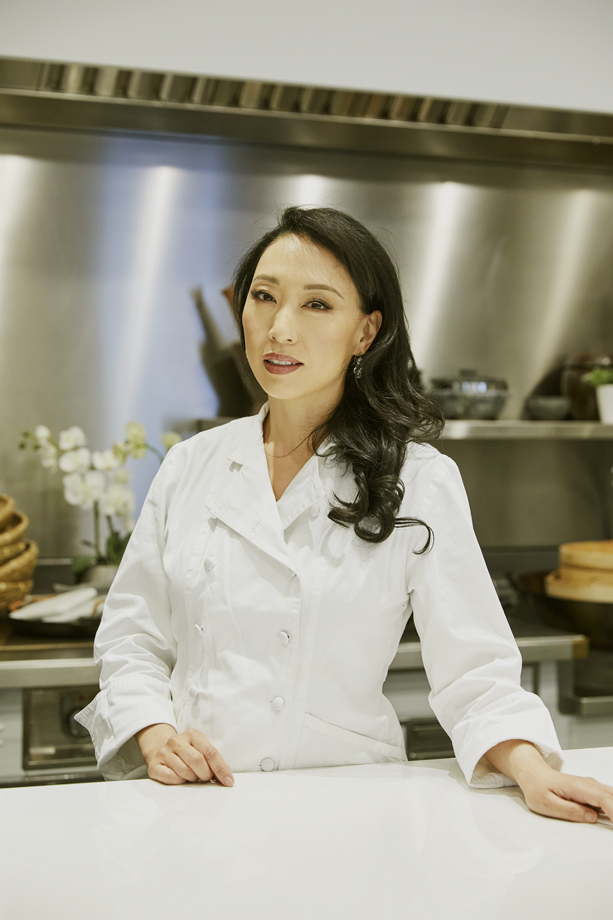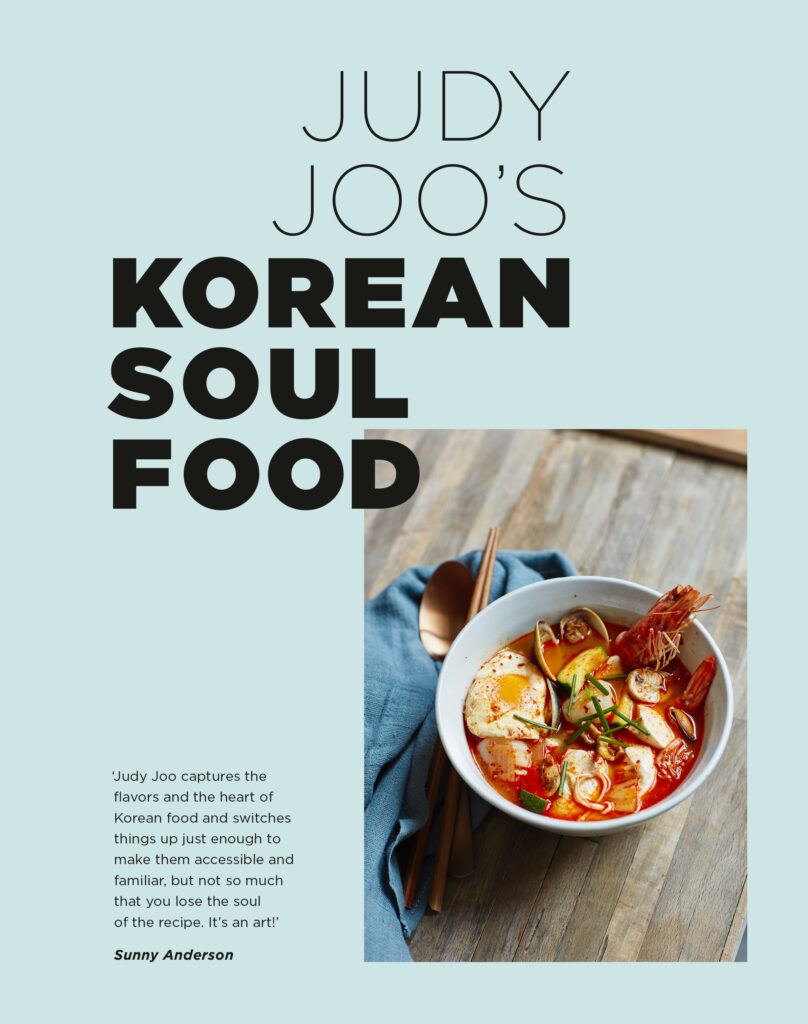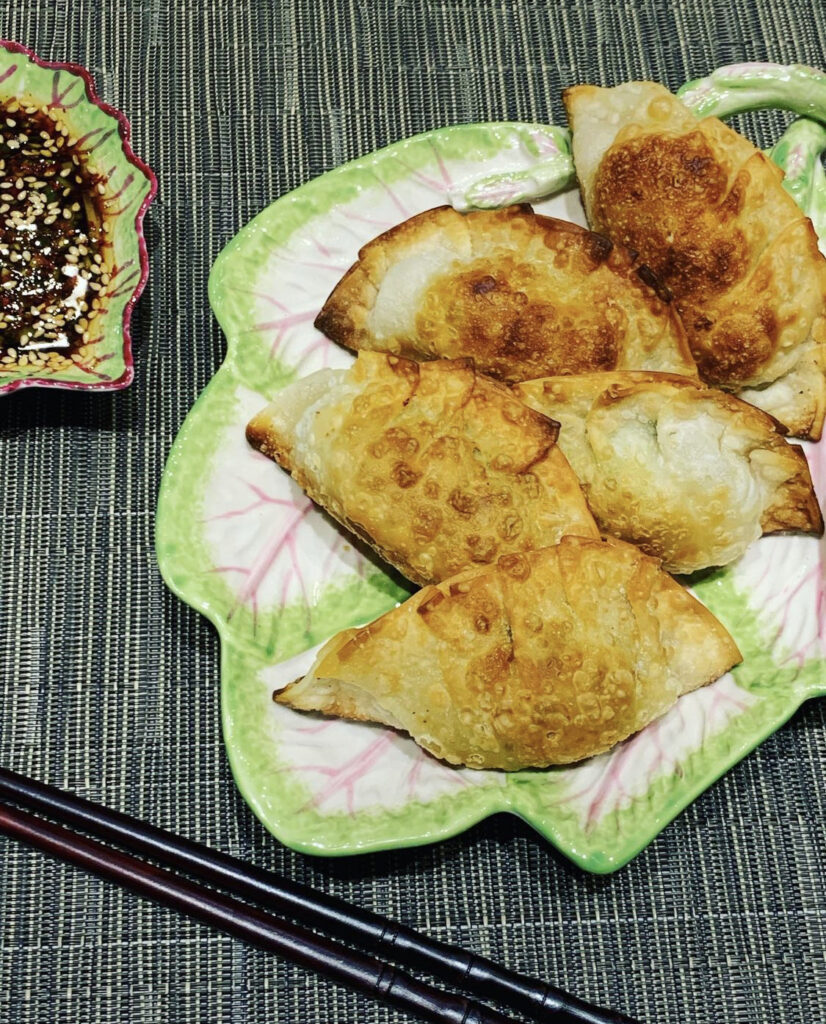Culture can be experienced through many forms such as art, music, language, literature and food. A traditional dish of a certain culture can tell a story. Not only with bursting flavors but also with its ingredient, name, and various factors that complete a dish. Chefs who specialize in cultural cuisine are the storytellers and today, Judy Joo tells her story through Korean cuisine.

Korean cuisine carries bold, punchy flavors that are bright and lively – “just like the people of Korea,” said Judy. The use of fermented products makes a simple dish into a complex one, full of flavors. Although Korean cuisine has exquisite flavors, it is still making its way into the global scene. Introducing a foreign menu while keeping the authenticity of the culture needs to be done so that even someone who has never tried will be able to enjoy a dish without being offset by the unfamiliar taste or ingredient. As Judy mentioned, “if somebody wants to make a bulgogi (marinated and grilled beef or pork dish) hamburger, I think that’s awesome. He/she doesn’t have to make bulgogi (only).” The essence of the culture can be portrayed in many ways; not just in full traditional meals. Including an authentic ingredient or a traditional flavor in a dish that the general population is familiar with is a great method to showcase the cultural flavor. Although certain traditional meals may be intimidating for many, the incorporation of authentic ingredients or key condiments can be very appealing in a different way to a bigger audience. Judy’s hope as a Korean-American chef is to have Korean flavors to go global.
Judy Joo has always had a spot reserved in her heart (and her stomach) for Korean cuisine. Although born and raised in the United States in a Korean-American household, her heritage and culture was not lost within her family and herself. After graduating from Columbia with a degree in engineering, Judy started working on Wall Street. But she realized her passion for cooking could be turned into something bigger than a hobby. With this epiphany of her true passion, Judy enrolled at the French Culinary Institute in New York and began her career in the culinary industry.

After becoming one of the four Iron Chefs on Iron Chef UK in 2011, Judy got her own cooking show for two seasons called Korean Food Made Simple which also led to her first cookbook with the same title. She also opened up her first restaurant in London called Jinjuu (a Korean word, meaning ‘pearl’). Jinjuu was the first upscale Korean restaurant in England that won design awards. Now, with her new restaurant, Seoul Bird, and the second book, Korean Soul Food, Judy continues to spread the flavors of Korea.
In recent days, Korean culture has started to stand out and gain recognition in the western population. K-Pop (Korean Pop) have made historic footprints in the Billboard charts. K-Drama has a huge following of avid watchers and is being translated in more than 90 languages all around the globe. This boom led to a “cultural voyeurism” of global interest in Korean cuisine through these media. The tteokbokki (a Korean rice cake dish with gochujang sauce base) that a member of BTS, the Grammy nominated group, ate or the meal that a main character of K-Drama had in a scene sparked curiosity in fans which led them to try the food.

To someone who’s never tried Korean food, mandu (a Korean term for dumplings) makes the perfect introduction dish. Although dumplings are most well-known as Chinese eats, it can be found in different cuisines around the world with variations – gyoza in Japan, ravioli in Italy, pierogi in Poland. Because the concept of the dish is quite familiar in multiple cultures, the Korean version of it, mandu can be a great first bite into Korean culture. There are delicious recipes of mandu in Judy’s cookbooks. In her most recent published cookbook, Korean Soul Food, there are over 100 recipes that are easy to follow but keep the Korean soul alive and tasty. The cookbook is currently available on Amazon.
Although Judy has had many amazing successes and distinguished herself in this industry, there has been challenges that she had to overcome. As an Asian-American chef, creating Korean based dishes, she has experienced untoward instances due to lack of knowledge on Korean cuisine. There seemed to be a definite need for more education on the matter to the public and Judy took on this challenge on herself. On top of being a racial minority, she was a female working in a male dominated industry. None of these obstacles stopped her from achieving her success; she is and will continue to be “strong and thriving”. She is the only female Iron Chef in the UK and has been a pioneer in presenting Korean cuisine in England. She believes that “the more barriers we break down, the better it is for all of us (including the younger generation).”
Judy’s newest venture, Seoul Bird is a restaurant currently located in London. The menu is focused on Korean street food such as Korean fried chicken, burgers and rice bowls. One of its signature menus is homemade Korean iced tea with two different flavors of ‘Yuzu Green Tea’ and ‘Green Plum and Ginger’. Judy is planning on opening a second location in London but also looking to expand to the United States, specifically to New York.
Jenny Hwang
Asia Journal

